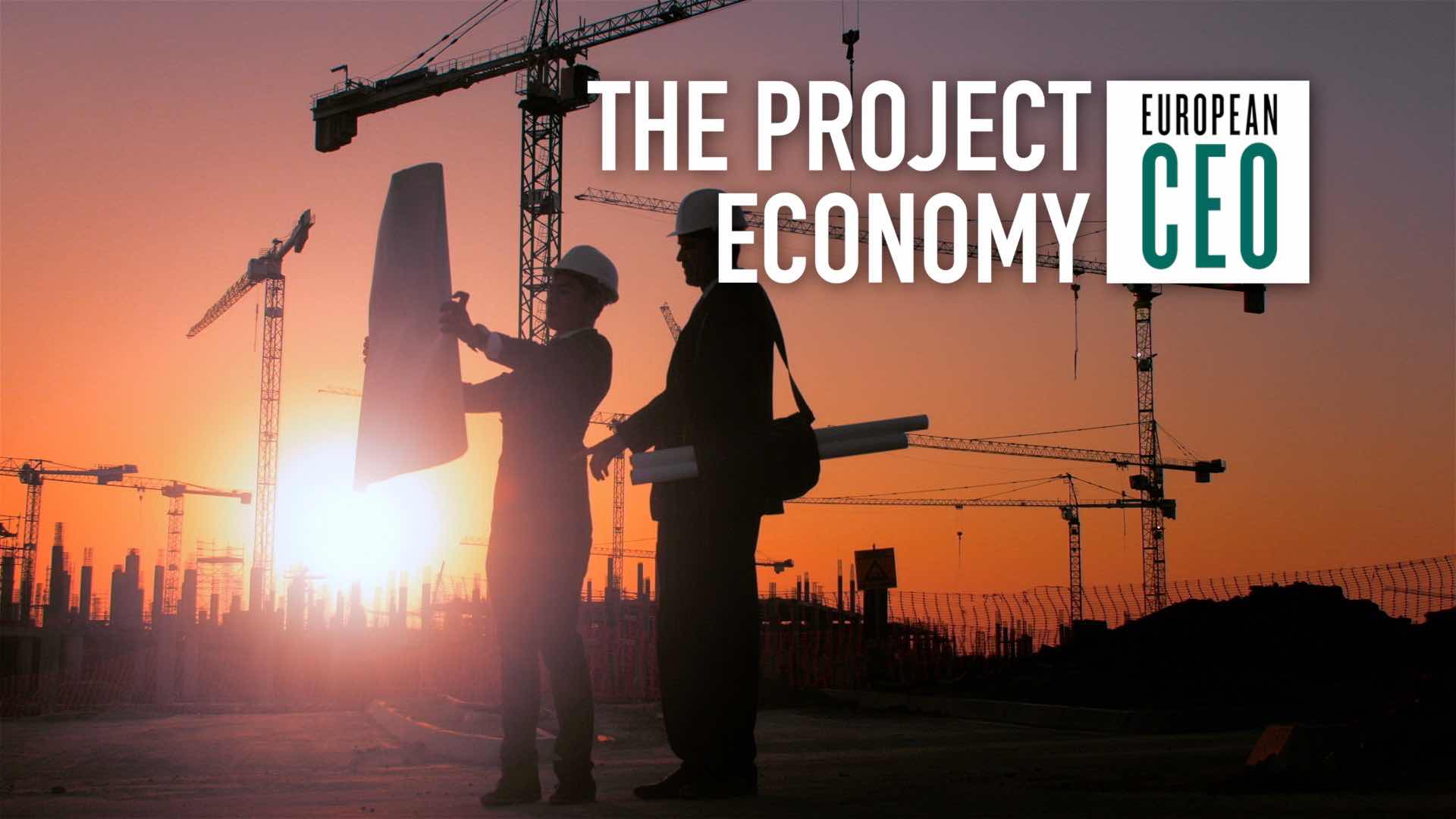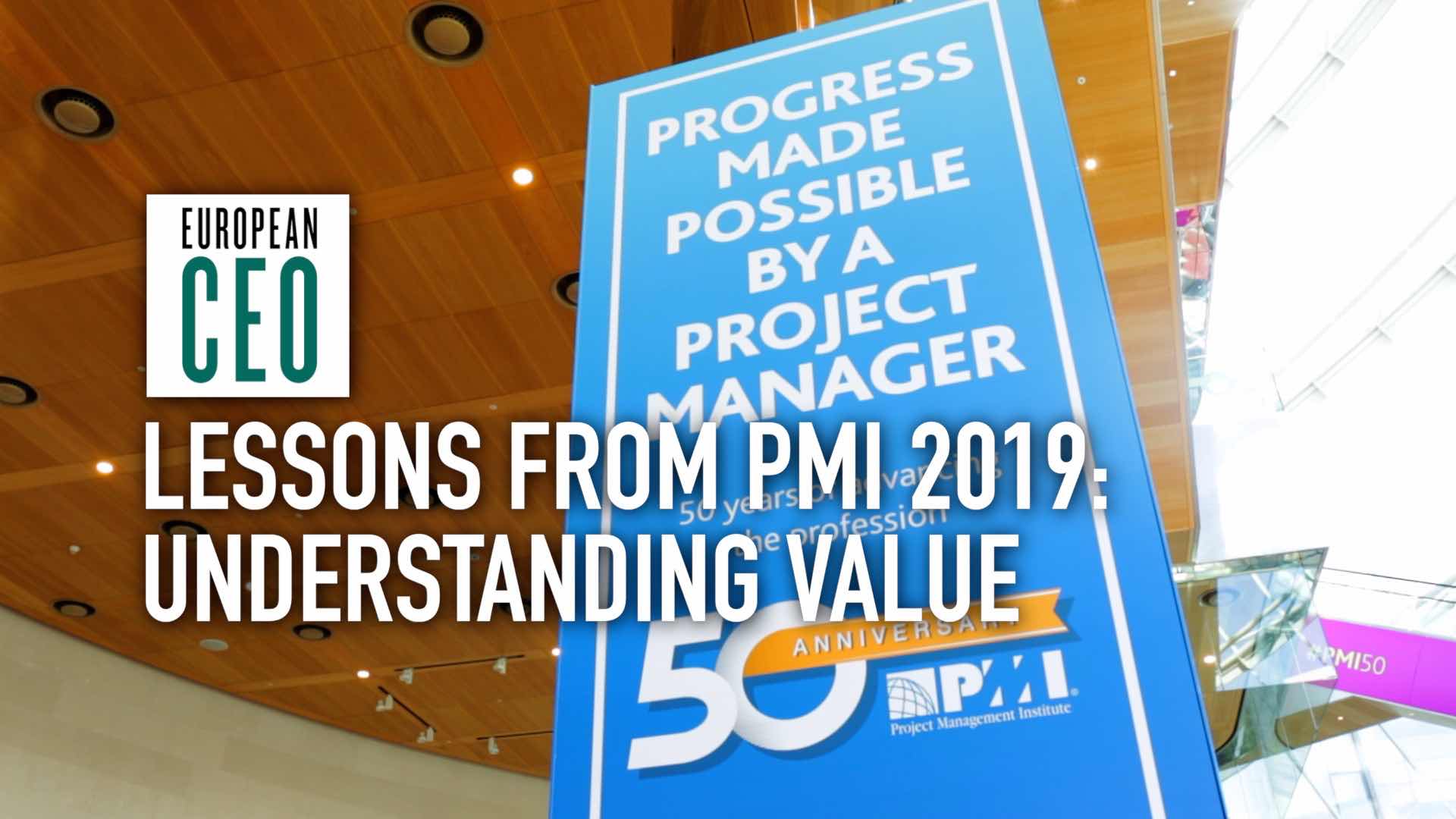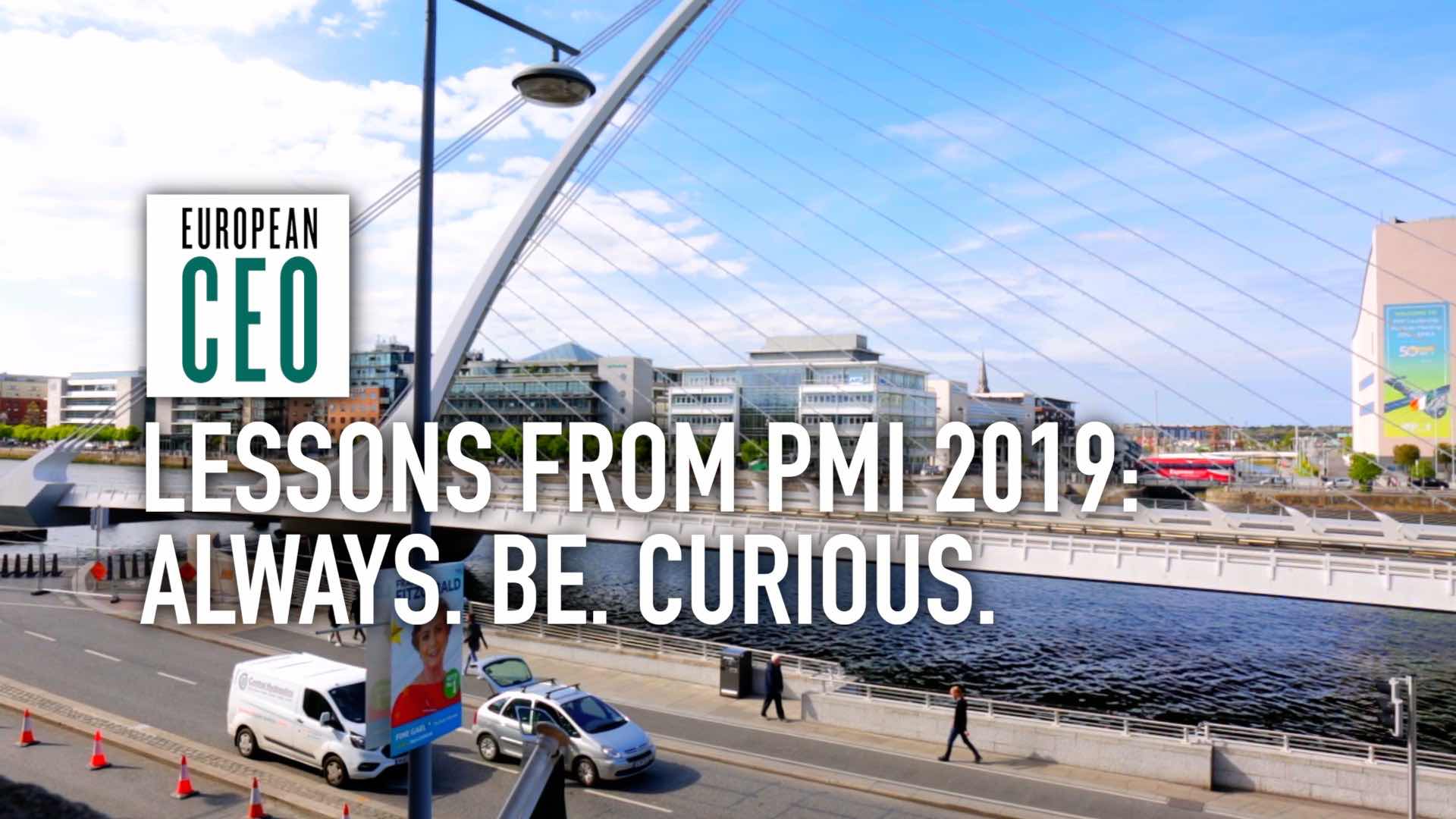PMI: There’s a lot of work to be done in the discipline of transformation
With very few transformation initiatives delivering on c-suite expectations, the Project Management Institute's Sunil Prashara suggests three strategies to success
Transcript
The Project Management Institute turned 50 this year! The milestone has seen the organisation adopt dynamic new branding, and a re-energised approach to supporting project management professionals. And, of course, the new President and CEO of PMI, Sunil Prashara, who came to London Stock Exchange Studios to discuss the important steps businesses can take to successfully transform their businesses, as technology radically changes the way we work.
European CEO: Sunil, of course the trend that won’t stop trending is the way that technology is changing the way that businesses operate and deliver value; what are the most significant examples of that you’ve seen, as head of PMI?
Sunil Prashara: Yeah, I think that it goes without saying that technology’s having a profound effect on businesses. Technology is driving competition, it’s driving new entrants into the market across multiple sectors. But not only that – I mean, technology is also being used internally in organisations to optimise. And needs to. Why? Because you’ve got things like robotics, automation, that’s changing the way work is going to be done in the future. You even have now cognitive technology like AI, which is complementing the work that humans do.
So the way work is going to be done in the future is changing. Organisations are having to look to say how are we going to operate in a world which is part technology, part human? How do they interface between themselves? How do we use that capability to be able to create competitive edge in a world that’s highly disruptive?
You know, at the end of the day, transformation is on the minds of most organisations that I talk to. And there are very few transformations that actually deliver what the c-suite were hoping for it to deliver. So there’s a lot of work that needs to be done in the discipline of transformation.
European CEO: Now, what are some actionable steps that businesses can take to transform their business models?
Sunil Prashara: So I think the first thing is, it’s great to have a methodology, and have a framework. There are a lot of frameworks that are out there; there’s talk of agile, agility, there’s our traditional waterfall capabilities around project management.
And I think project management plays a very, very important part in transformation. Because what is project management? It’s a capability that allows you to get things done: take an idea, and make it into a reality. That is a really valuable skillset in this world of transformation and change.
So I think a lot of organisations are looking towards the way work is done, and saying: how can we optimise that better? What skillsets do we need? What do our project managers need to be able to deliver – over and above what they did traditionally.
European CEO: You mentioned the disconnect between the c-suite and the actual implementation of that strategy; what challenges do companies face in implementing strategy, and how can they overcome them?
Sunil Prashara: I think the very, very first one that comes to mind is employee engagement. I think it’s very, very important that when you’re going through a transformation – once you know what that transformation is supposed to deliver – that you have engagement from your employees. They are the ones that are going to be impacted the most, they are the ones that are going to implement the change for you, they’re the ones who are going to have to live and breathe it. They are also the ones who are going to have to adopt the changes that you’re going to make. So the number one thing I think is your employee engagement.
The second thing is a sense of urgency. Technology is moving very, very fast, and most organisations look to reinvent or transform every 18 months. You may end up with a technology solution to automate, systemise, codify a specific workflow or specific process. If you don’t get that in, the return on the investment on that might be impacted by the next technology that comes in. So getting a return quickly, and having that sense of urgency to make that work done, in the right timeframe, is very important.
I think the third thing is discipline and governance. And this is where the role of the project manager comes in as well, because it’s a very complex thing to do – a transformation. You’re changing the DNA and mindsets of a company – sometimes from a reactive to a proactive mindset, sometimes from a business as usual way of working to an outcome-focused, metrics-driven type of organisation. Using technology where you can use it, automating workflows where you need to do it.
So I think having that empathy and experience around that, the project manager can play a big, big part in managing the different stakeholders, managing the technology components, keeping momentum and the sense of urgency. Managing empathy and engagement from all the staff that are impacted.
European CEO: Sunil, thank you very much.


 The Project Economy: What it means for the world, business, and you
The Project Economy: What it means for the world, business, and you Understanding and delivering value | PMI EMEA Congress 2019
Understanding and delivering value | PMI EMEA Congress 2019 Why project managers need to always be curious | PMI EMEA Congress 2019
Why project managers need to always be curious | PMI EMEA Congress 2019